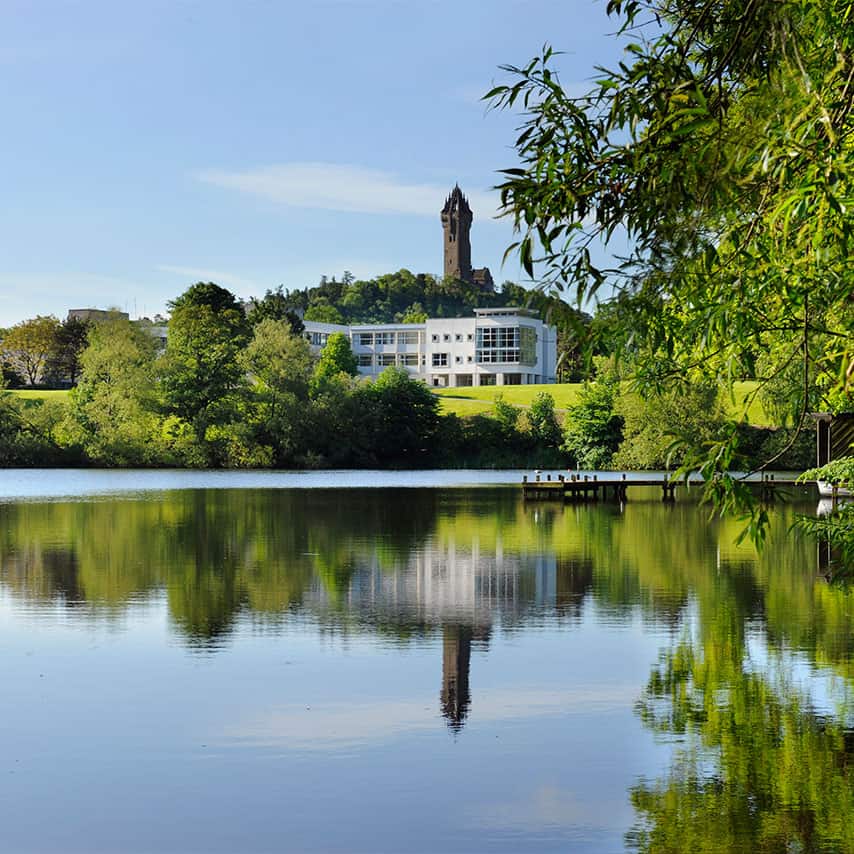
Compared with men, female researchers who work in the STEM field are still underrepresented. Many factors affect that phenomenon—from the nature of the field that require immense physical works to the gender stereotype in society. Annisa Dinusislam is one of the women who walk her path in the STEM field.
Annisa is an awardee of Women in STEM Scholarship British Council 2021/2022. She is now studying at the University of Stirling, majoring the MSc in Sustainable Aquatic Culture. Our Content Director for UK and Europe, Rizkiya Ayu Maulida, had a chance to have a conversation with her, where she shares her experience.
***
Hi Annisa! Thank you so much for taking the time to talk with us. Can you tell us about yourself?
My name is Annisa Dinulislam, or people usually call me “Dinul” or “Annisa”. Currently, I am studying at the University of Stirling, taking Msc in Sustainable Aquatic Culture.
Previously, I studied at Institut Pertanian Bogor (IPB), taking a Bachelor’s degree in Aquatic Resource Management. During the time of my studies, I also worked as a freelance journalist, focusing on environmental journalism. I also worked part-time in the university public relations division, where we produced some articles with environmental themes, such as agriculture, fisheries, maritime, as part of building the campus’ reputation.

Tell me about your field of study in the UK and why do you choose the UK as a place to study
Well, my course is the continuation of what I learned in my Bachelor’s degree. My course in Bachelor’s degree was quite general where I learn about the management of the aquatic resource. In my Master’s degree, I decided to do something more specific.
There are many specializations that I could opt-out from the field of aquatic resources. I choose to be specialized in aquatic culture. This course offers me a lot of opportunities to learn deeper about fish—from its genetics, water maintenance, the environmental impact of fish conservation, and so on. The course also has a big focus on salmon, since salmon is one of the biggest fish commodities in Scotland.
However, I still get the freedom to choose the project that is related to the Indonesian situation, since Indonesia has tropical weather so it also has a different range of species of fish. Most of the professors also has done some research in other regions outside the UK, such as South East Asia. So I can conclude that this course provides me with global insight.
When it comes to the country where I study, I am very picky. I only pick the country that has high quality education system. The UK has a world-class quality of education, and my university, the University of Stirling, is one of the most prominent institutions in the world, in terms of aquatic study. In addition, the information about education in the UK is easy to access.
I remember when I typed the keyword “Study in the UK” on Google and already found plenty of reliable resources about studying in the UK. The last but not least, UK’s position and landscape are interesting for me, as someone who likes to travel and study environment while traveling.

What was the first thing that pique your interest in the STEM field?
It was started when I was in high school when I had to choose between the Social and Science program. I wanted to go into the Social program. However, my teacher insisted that I had to enroll in the Science program because of my excellent grade in Math. As time went by, I still did not like Math. But I found a new interest, Biology. I found Biology is fascinating because through the subject we can learn a lot about God’s creatures.
Hence, when I applied for college, I choose three biology-related majors in IPB. I was accepted on my second choice, Aquatic Resource Management
Did you find any challenge regarding to your gender while working or studying in the STEM field? If yes, how did you overcome that?
Yes, every time. I will not say that STEM is an easy field—It is quite difficult for both genders. But, for women, It is usually because of our physical condition—that different from a man–and the nature of our field. The field of fisheries required a lot of physical activities, such as experimenting in the river or lake, while we have to carry heavy equipment as well.
Regardless the gender equality, our body is built differently than a man. We had some limitations in terms of physical strength. It is a challenge because when there is any job opportunity that required physical activities, the recruiter will usually choose the men candidate over a women candidate because they are more convenient for the job.
However, I took that situation as another motivation to pursue further study. If I only hold a Bachelor’s degree, the job opportunity that is available for me is the technical position. But, by having a Master’s degree, I can broaden my possibility to be in a managerial or analytical position, the position where it doesn’t require physical capabilities as much as the technical one. Not to mention, I can channel more of my analytical and academic skills, rather than physical strength.
Do you have any message for those fellow young women out there who want to pursue a career/study in the STEM field?
You might doubt yourself at first, but ask yourself: do you want to stay forever in your comfort zone or do you want to see the world, which you have the key to open the door, but it is blocked by your own fear. Give yourself a chance to open the door, and you will find many things that will lead you to find who you are.

Any tips for anyone who wants to pursue a scholarship in general?
Don’t give up if you are being rejected from a scholarship. When you fail a scholarship, it does not mean that you are undeserving, it is just not meant to be yet. You have to keep chasing your goals until you reach the finish line, that is you get the scholarship.
If you are female researchers who work in the STEM field, do not miss your opportunities to get the prestigious Women in STEM scholarship from the British Council. For further details, click the following link.






